The information below provides links to news related to Insight 46 published research and the team.

Alzheimer's Association International Conference 2024
August 2024
Several members of the UCL Dementia Research Centre attended the annual Alzheimer's Association International Conference (AAIC) 2024 in Phildelphia, PA, USA. Highlightes from the Insight 46 team include presentations by Prof Jon Schott (How can clinical trials be designed in partnership with our participants?), Dr Josh King-Robson (Shift and night work in the fourth decade is associated with reduced brain volume in late life independent of amyloidogenic pathways: an Insight 46 study), and Mr William Coath (Estimating the time between Aβ positivity and elevated regional tau in preclinical AD). In addition, posters were presented by Dr James Groves (Accelerated midlife epigenetic age associates with poor later life brain health in the 1946 British Birth Cohort) and alumn Dr Tom Parker (The long-term impact of rugby, soccer and boxing participation on brain health in older adults from the general population: insights from the 1946 British birth cohort).
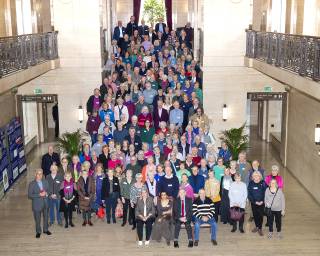
NSHD 78th Birthday Roadshow
04 March 2024
The NSHD cohort members all turned 78 years old in March 2024. To celebrate, a series of birthday roadshow events were held in five locations around the UK -- London, Glasgow, Manchester, Cardiff, and Plymouth. The picture on the left shows all of the study members who attended the London event on 4th March 2024. Each event included a series of talks about ongoing NSHD research and an opportunity for cohort members to interact with one another over lunch and birthday cake. More information about the events can be found here, and a video of the London presentations can be viewed here via YouTube.
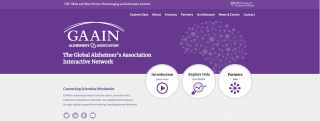
Insight 46 becomes a GAAIN data partner
12 October 2023
Insight 46 is now a Data Partner with the Global Alzheimer's Association Interactive Network (GAAIN). Some Insight 46 variables are available to explore using the GAAIN Interrogator, which allows reserachers to explore large cohorts of Alzheimer's disease subjects across attributes from GAAIN data partners. Examples of those variables include: biological (blood, urine, CSF); genetic (apoE); participant characteristics (sex, education, handedness); neuropsychology scores ( Logical Memory - Immediate and Delayed, Digit Symbol Substitution, Matrix Reasoning, Preclinical Alzheimer Cognitive Composite [PACC]); clinical (AD8, CDR, MMSE, mild cognitive impairment, dementia consensus); MRI (regional and whole brain volumes); and amyloid PET (SUVRs, positive/negative). Click here to go to the GAAIN website to learn more.
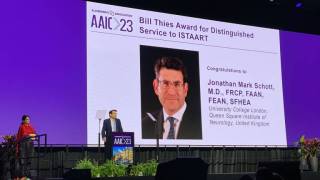 |
Professor Jonathan Schott receives the 2023 Bill Thies Award
1 August 2023
We're delighted to announce that Professor Jonathan Schott (UCL Queen Square Institute of Neurology) has received the 2023 Bill Thies Award for Distinguished Service to ISTAART (The Alzheimer’s Association International Society to Advance Alzheimer's Research and Treatment).

Staff and doctoral students from across UCL attend the Alzheimer's Association International Conference (AAIC) 2023 in Amsterdam
July 2023
Members of the Insight 46 team joint members of several UCL departments to attend AAIC 2023 both virtually and in person in Amsterdam. Five members of the team presented posters on topics including white matter hyperintensities, plasma biomarkers, and associations between exercise and brain health. Two members of the team were invited to present on Insight 46 data - one on PET imaging and one on accelerated long-term forgetting.
Neuroscience Next: Discover Dementia Biomarkers
20 April 2023
Early career researchers from University College London gave presentations covering digital, imaging and fluid biomarkers. Two members of the Insight 46 team gave presentations as part of this meeting. Tom Brown gave a presentation entitled, "Investigating relationships between changes in white matter hyperintensity volume and hippocampal atrophy in the 1946 British birth cohort (Insight46)". Will Coath gave a presentation entitle, "Imaging amyloid-beta, tau and neurodegeneration in preclinical Alzheimer’s disease".

New research to track sleep with innovative sensor to help diagnose dementia
25 May 2023
The major new project, funded by the National Institute for Health and Care Research, will use a sleep sensor mat and a ‘digital biomarker’ to track 250 individuals of the Insight 46 study and observe which individuals have evidence of poor brain health.

How a study which began just after the end of the second world war is discovering clues to Alzheimer’s – Uncharted Brain podcast part 1
16 November 2022
Scientists have been doing an array of regular health checks on the same group of people since they were born in 1946 – the world’s longest running cohort study. Now the brains of some of its participants are revealing new insights into the risk factors for Alzheimer’s disease.
We find out more in the first episode of Uncharted Brain: Decoding Dementia, a new podcast series available via The Anthill.

How a 76-year-long study has allowed a better understanding of brain health and dementia risk
28 October 2022
How does our health and circumstances in early and midlife affect our brain health in later life?
Researchers at University College London (UCL) led by Alzheimer’s Research UK’s Chief Medical Officer, Prof Jonathan Schott, are helping answer this question in a study called Insight 46, which has lasted 76 years so far.
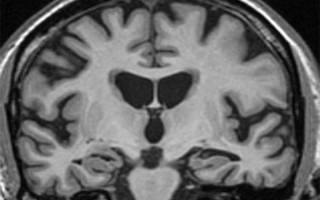
Poor heart health predicts premature brain ageing
23 August 2022
By estimating people’s brain age from MRI scans using machine learning, a team led by UCL researchers has identified multiple risk factors for a prematurely ageing brain.
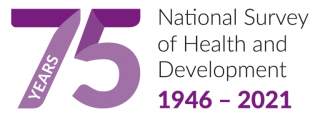
The cohort turns 75!
March 2021
In 2021 we celebrated a special birthday, as the study members of the MRC National Survey of Health and Development turned 75 years old.
To celebrate this special year, we produced a timeline brochure detailing the key events of the NSHD over the last 75 years and organised a series of online talks, detailing the findings and history of the study.
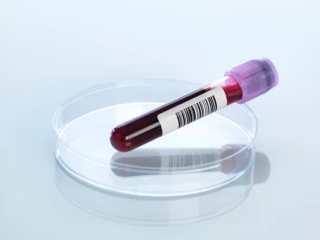
Detecting Alzheimer’s Gets Easier with a Simple Blood Test
04 February 2021
New assays could reduce the need for costlier, more invasive brain scans and spinal fluid measures.

Incidental Finding on Brain MRI Seen in 5% of Older Patients
11 May 2020
New research shows that almost 5% of older British citizens have potentially serious brain abnormalities, including aneurysms, and about a third have blood test abnormalities.
Knowing the expected prevalence of such incidental findings in the older general population is "extremely useful" for both researchers and clinicians, study author Sarah Elisabeth Keuss, MBChB, Dementia Research Centre, UCL Queen Square Institute of Neurology, London, UK, told Medscape Medical News.
 Close
Close

